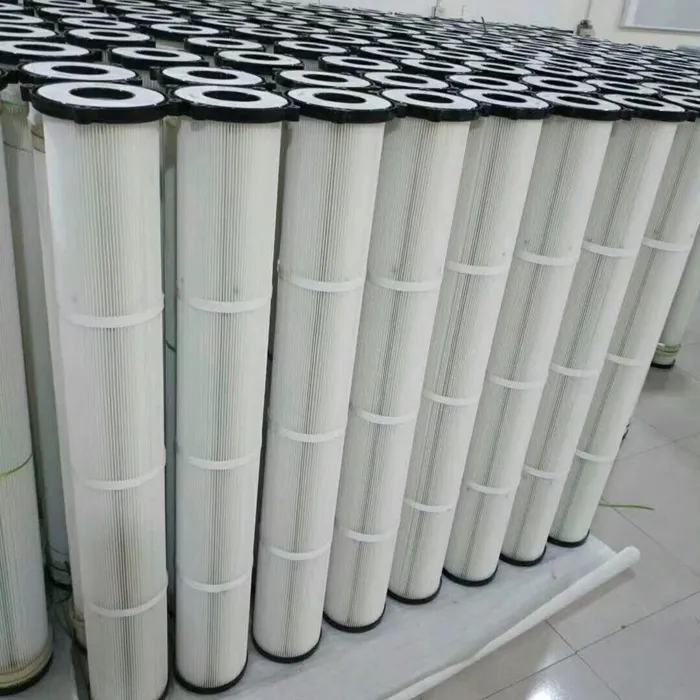 Tel:
+8615930870079
Tel:
+8615930870079
Déc . 30, 2024 23:34 Back to list
High-Performance Cartridge Filters for Efficient Industrial Dust Collection Systems
Industrial Dust Collector Cartridge Filters A Vital Component for Clean Air
In industrial settings, the air quality is often compromised by the release of dust and particulate matter. This issue can lead to a plethora of health problems for workers and may also damage sensitive equipment. To mitigate these risks, many industries utilize dust collector systems that incorporate cartridge filters. This article explores the significance of cartridge filters in dust collection systems, their operational mechanics, and the benefits they provide.
Cartridge filters are cylindrical filtration devices used to capture dust and airborne particles from industrial processes. They are designed to be a crucial component of dust collection systems, ensuring that the air in manufacturing plants, warehouses, and other industrial environments remains clean and safe. The unique design of cartridge filters allows for a higher efficiency in capturing smaller particles, compared to traditional bag filters, which makes them an excellent choice for various applications.
The operational principle of cartridge filters is relatively straightforward. The cartridges are made of a porous material that traps dust as the air passes through them. Airflows into the filter chamber, and as the dust-laden air moves through the filter media, particles larger than the pore size are captured. This process not only cleans the air but also prevents the buildup of dust within the workspace, reducing the risk of fire hazards and ensuring compliance with health and safety regulations.
One of the primary advantages of cartridge filters is their compact design. Unlike traditional dust collection systems that may require extensive floorspace, cartridge filters have a smaller footprint, making them suitable for operations with limited space. This efficiency not only saves room but also allows for more flexibility in system design and layout.
industrial dust collector cartridge filters

Another significant benefit of cartridge filters is their long-lasting performance and reduced downtime. These filters can often last longer than bag filters before requiring replacement. Their filtration effectiveness also means they can often handle larger quantities of dust without clogging. Regular cleaning mechanisms, such as pulse jet systems, can be utilized to dislodge collected dust from the filter surface, prolonging the life of the cartridges and maintaining optimal airflow.
Economic considerations also make cartridge filters an attractive option for industrial applications. While the initial investment might be higher compared to other filter types, the operational savings quickly make up for this expenditure. The efficiency of cartridge filters in dust collection means less energy is consumed to maintain airflow. Additionally, lower maintenance and replacement costs further enhance their cost-effectiveness over time.
Moreover, the environmental aspect of using cartridge filters cannot be overlooked. By ensuring that airborne pollutants do not escape into the atmosphere, businesses actively contribute to improved air quality both inside and outside their facilities. This not only benefits the health of workers but also aligns with regulatory standards and corporate sustainability goals.
In conclusion, industrial dust collector cartridge filters play a pivotal role in maintaining a safe and clean working environment. Their efficient design, compactness, longevity, and cost-effectiveness make them an integral component of modern dust collection systems. As industries continue to prioritize health, safety, and environmental sustainability, adopting advanced filtration technologies, such as cartridge filters, is not just a choice but a necessity. By investing in the right dust collection systems, businesses can ensure the wellbeing of their workforce while enhancing productivity and compliance with regulations.
-
Nano Fiber Technology: Revolutionizing Cartridge Dust Collector FiltersNewsAug.06,2025
-
How Activated Carbon Air Cartridges Eliminate OdorsNewsAug.06,2025
-
Dust Filter Cartridge Handling Fine Particulate MatterNewsAug.06,2025
-
Cartridge Dust Collector Filter for Welding Fume ExtractionNewsAug.06,2025
-
Activated Carbon Filter Cartridge Effectiveness Against VOCsNewsAug.06,2025
-
Activated Carbon Air Filter Cartridge Benefits ExplainedNewsAug.06,2025

 Email:
Email:





